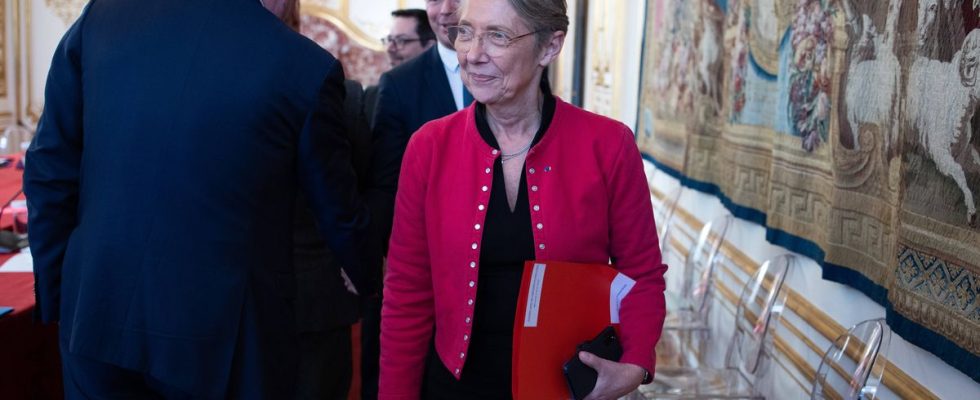Prime Minister Élisabeth Borne receives independence and non-independence delegations from New Caledonia in Paris on Tuesday, before further meetings with the Minister of the Interior by the end of the week, in the hope of finally relaunching the dialogue on the institutional future of the archipelago.
Elisabeth Borne will first meet the separatists of the Socialist Kanak National Liberation Front (FLNKS), who had accepted the principle of a trip to Paris in early March.
At the end of October, the State had failed to bring the separatists to a “partners’ convention”, bringing together political but also economic actors to discuss the future of the territory, while the cycle of three self-determination referendums, planned by the Nouméa agreement signed in 1998, ended at the end of 2021.
“No decision can be taken”
But if the separatists have since validated the principle of bilateral discussions with the State, Daniel Goa, the president of the Caledonian Union, one of the main components of the FLNKS, recalled in a press release that “at this stage, (our representatives) will not negotiate anything and no decision can be taken”.
As for trilateral discussions, which would bring together the State, the independentists and the non-independentists, “they cannot take place until our structures have studied and chosen the proposals discussed during this Parisian sequence”, stipulates Daniel Goa .
What electorate?
A meeting between all the actors therefore still does not seem to be on the agenda, almost a year and a half after the disputed referendum of December 12, 2021, boycotted by the separatists and which had therefore unsurprisingly seen the supporters of maintaining in France win.
For their part, the non-independentists hope that this new Parisian meeting will make it possible to move forward on the thorny question of the electorate. During his visit to New Caledonia in early March, Interior Minister Gérald Darmanin announced that the provincial elections, a crucial local election, would take place in 2024.
However, the Nouméa agreement provides that only natives and residents who can prove ten years of residence on this date can vote in provincial elections. The loyalists have long called for the opening of the electorate, but the separatists are fiercely opposed to it.
Elections in May 2024
While Les Loyalists, a movement led by Secretary of State Sonia Backès, believes that an agreement on the electorate is possible and can be discussed independently of negotiations on the future status of the territory, Calédonie Ensemble for its part believes that it must not dissociate the electoral dossier from the institutional future.
During his visit in early March, Gérald Darmanin repeated that he wanted the provincial elections scheduled for May 2024 to be held with a modified electoral body. “We cannot function with an electorate that remained blocked in 1998,” he pleaded.

